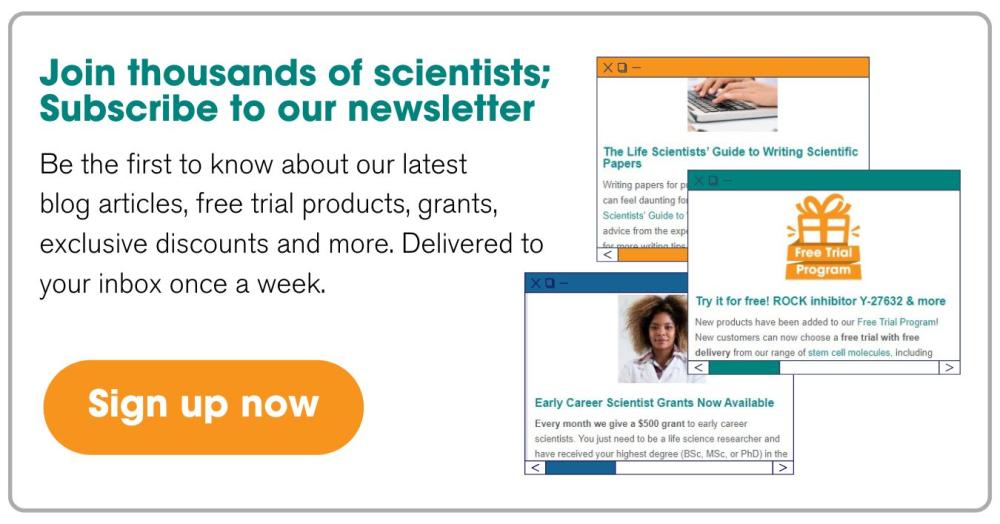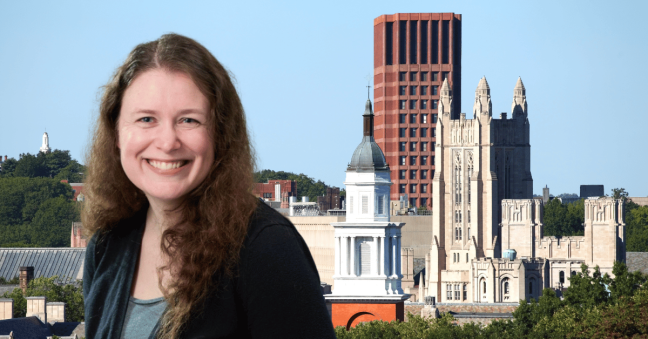First-Gen in Science: Why Our Journeys Matter
Recently I filled out an application for an international initiative pairing middle schoolers with scientists around the world to exchange letters during a school year. Letters to a Pre-Scientist (a great and worthy initiative by the way!) is supposed to provide middle school kids from low-income schools access to a real-life STEM professional and demystify STEM career options, possibly and hopefully igniting that spark for science. However, this is not an article about that initiative. Even though we’ve all filled out hundreds of forms during our careers, for the first time ever I was asked if I identify as a first generation college student. Nobody has ever asked me that in my entire career. And it got me thinking.
When you get to a certain professional level, you are, more or less, perceived a certain way. There are requirements and conditions to fulfil if you want to be promoted to e.g. associate professor level. Universities and countries of course differ, but generally for a job in academia you have to have a PhD, publish peer-reviewed papers, obtain research grants, participate in peer-reviewing yourself, teach, write textbooks and create teaching materials. So everybody “knows” how much work stands behind a certain job position and what is the path to get there. Or do they?
I do indeed identify as a first generation college student. Nobody in my immediate family went to university. My parents finished high school and started working right away. As far as I know, I’m the first person in my whole extended family to get a PhD, let alone be a university professor. So how different is my path to that of a professor whose family went to university, or even worked and taught in academia?
A colleague once told me a story about how he struggled while getting his undergraduate degree. He is a chemist, his mother is a chemist, and his grandfather was a university chemistry professor. So when my colleague struggled with understanding stereochemistry and isomerism, he’d visit his grandfather who whipped out physical molecule models and explained it to him. Another example is a colleague who wasn’t sure which undergraduate program to enrol in and what would give her the broadest options for finding a good job later, keeping in mind her interests. So she consulted with family and friends, all university professors and even academicians, before making the final decision. Me? I’d never heard of a colloquium before I started university. I hadn’t been aware that colloquium partial tests existed, I didn’t know how exam terms were organized, how academia works, or what each university job title meant. Since I went to a small school which wasn’t equipped like some schools in the capital city, nor with that kind of science budget, my first ever encounter with a lot of lab equipment (even as simple as an automatic pipette) was in the lab at university. And there was a glaring gap when it came to my preparedness for classes, studying and navigating through university life compared to some of my colleagues.
I managed to overcome my “deficiencies”, but it wasn’t always easy. By no means do I wish to say that it was easier for students with backgrounds and families that are more educated, nor do I think their accomplishments are less worthy. However, the same accomplishment (e.g. getting your BSc or MSc degree), even though it is exactly the same on paper, is absolutely not the same for everybody. If someone appears to have reached the same height, it does not mean they’ve taken the same number of steps up the ladder.
So what would have helped me? Maybe access to people in these types of careers to get a feeling of how it looks. Opportunities to consult with and get advice from people in similar fields as well as different career paths. Being able to talk to students of the undergraduate programme I was interested in before I enrolled and hear about their experiences. Can we strive to create, strengthen and stimulate interest groups and events which would do precisely that for kids wondering what they should do after high school? I hope so, because I think it would help them to feel more confident in their choices and be better prepared for what lies ahead.
To conclude, be proud of your professional journey and your career accomplishments because only you know what it took to get there. Don’t hastily compare yourself with your colleagues on the same professional level: it is a double-edged sword that can lead to making you feel inadequate or like you didn’t try enough. Celebrate your successes, and help others to achieve theirs!
About the author
Kristina Mlinac Jerković is an Associate Professor at the University of Zagreb, Croatia. She completed the integrated undergraduate and graduate programme in Molecular Biology in 2005 at the Department of Biology, Faculty of Science, University of Zagreb. In 2007 she began working at the university’s School of Medicine, and in 2008 she enrolled in doctoral study in Biochemistry at the Department of Chemistry, Faculty of Science with courses in Neuroscience at the School of Medicine. She obtained her PhD degree in 2012 and was promoted to Assistant Professor at School of Medicine in 2018, and to Associate Professor in 2023. She is a member of the Laboratory for Molecular Neurobiology and Neurochemistry at the Croatian Institute for Brain Research, School of Medicine in Zagreb.
Connect with Kristina:
-
LinkedIn: Kristina Mlinac Jerković
-
ResearchGate: Kristina Mlinac Jerković
-
Facebook: Kristina Mlinac Jerković
More on alternative STEM career paths and options
If you’d like to read more about alternative career paths for life scientists, take a look at this great selection of articles and interviews on the Hello Bio blog:
-
Rooted in Research: How to Build a Successful Science Career Without Moving Institutions - guest blog by Dr Rachel Perry
-
Academic vs. Non-Academic Science Careers (and choosing the right path)
-
We asked our scientists: what’s the best career advice you’ve ever had?
________________________________
If you enjoyed this article, why not check out the other resources available on our blog. We are passionate about supporting life scientists including early career life scientists and PhD students - with really low-priced reagents, antibodies and biochemicals, early career scientist grants, and resources to help with both personal and professional development. We know how tough it is - so we hope you find these helpful!
More General Support for Life Scientists
For advice on wellbeing, dissertations, presenting at conferences, wellbeing, PhD support, networking and lots more, we have a huge range of articles to help - just click below:
Save up to 50% on our high purity reagents...
When you get to the stage of planning your experiments, don't forget that we offer a range of low-cost, high-purity agonists, antagonists, inhibitors, activators, antibodies and fluorescent tools (yes - they really are around half the price of other suppliers!) You can use our Quick Multi-Search Tool to search for lots of products in one go, and the range includes:
- Enzyme inhibitors and activators
- Chemogenetic ligands
- Ion channel modulators
- GPCR & ionotropic receptor ligands
- Cell biology reagents & biochemicals
Technical resources
Try our Molarity Calculator: a quick and easy way to calculate the mass, volume or concentration required for making a solution.
Try our Dilution Calculator: an easy way to work out how to dilute stock solutions of known concentrations
We also offer a comprehensive range of technical resources including antibody protocols and methods, product guides and mini-reviews:
And finally, don't forget to check back in with our blog regularly for our latest articles. If there’s something you’d love to contribute to the community, whether that’s an interview or article, drop us a line at hello@hellobio.com
---
























